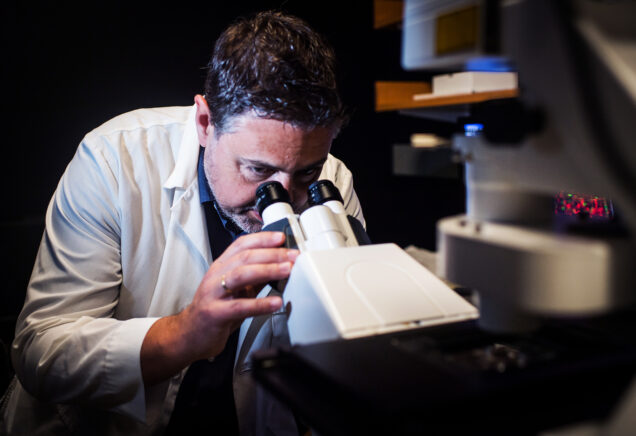Unlocking the Mind’s Potential

HUGO JAVIER APARICIO, an assistant professor of neurology, is researching how brain diseases may uniquely affect people of color, various sexes, genders, ethnicities, and/or cultural backgrounds, with the goal of developing personalized prevention methods.
Assistant Professor of Psychiatry AUDREYANA JAGGER-RICKELS, in a study published in the Journal of Affective Disorders, has identified a marker in the brains of veterans who have a history of suicide attempts. It connects areas that regulate cognitive control and self-referential processing. This discovery could prove essential in assessing suicide risk, even before an attempt is made.
SMRITHI SUNIL(ENG’21,’21), a former doctoral student at BU’s NEUROPHOTONICS CENTER, and ANNA DEVOR, a professor of biomedical engineering, published an NIH-funded study in Neuroimaging in March 2023 examining the relationship between neural activity and cerebral blood flow after a stroke. Their findings indicate that neuroimaging could inform individualized treatment techniques and improve recovery.
VASILEIOS ZIKOPOULOS, director of the HUMAN SYSTEMS NEUROSCIENCE LABORATORY; HELEN BARBAS, professor of health sciences; and ARASH YAZDANBAKHSH (GRS’05), director of the COMPUTATIONAL NEUROSCIENCE & VISION LABORATORY, are building a digital brain that can simulate human brain activity, helping us understand which cortical mechanisms affect various disorders, including autism.
JAMES TRANIELLO (CAS’74), a professor of biology, studies more than 30 different species of ants’ brains. By identifying variations in their “mushroom bodies” (the insect-brain equivalent of the mammalian cortex), Traniello is uncovering how differing cognitive demands may affect ants’ learning, memory, and more.